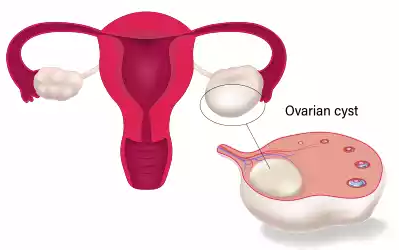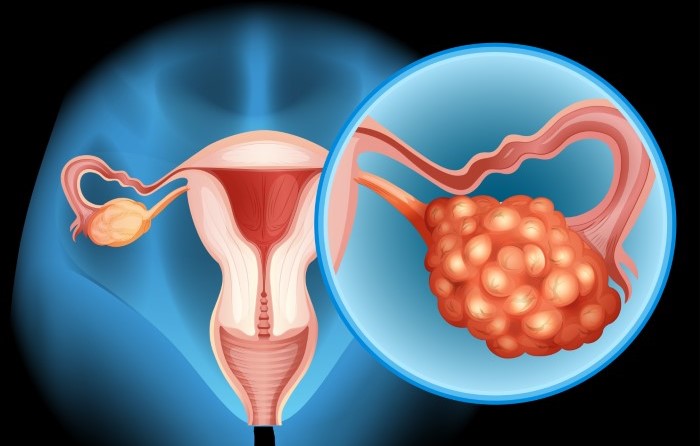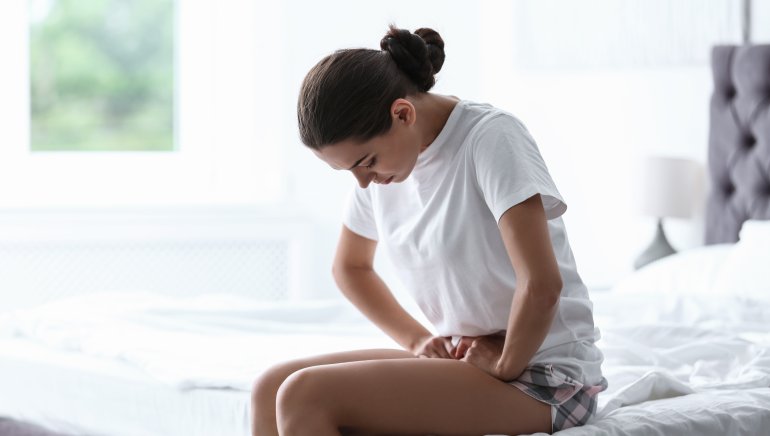Menstrual Health in Teen Girls: A Guide for Parents and Daughters

Every teen girl and her parents have to acquire knowledge about menstrual health. Menstruation is a normal and healthy condition in the growth of a girl, but filled with perplexity, myths, and awkwardness. To parents, knowledge about menstrual health equips them to take their daughters through the process with love, understanding, and the right facts.
Understanding Menstruation
A period is the monthly discharge of the uterus in girls and women at their childbearing age. The development of the illness typically begins between the ages of 11 and 15; some girls develop it earlier, and some develop it later. Periods are an indication of normal growth and functioning of the body, and also the well-being of the reproductive system.
The average menstrual cycle is usually 28 days, and it may take 21 to 35 days. The process is cyclical, where hormonal adjustments occur in order to prepare the body in the event of a pregnancy. In the initial years after menstruation occurs, the menstrual cycles would be irregular, which is expected and normal in most cases.
Common Menstrual Symptoms
Teen girls may experience a range of symptoms during their periods, including:
- Abdominal cramps: Lower abdominal pain is a normal option during periods, as there are uterine contractions. The cramps may be simple soreness or severe pain that interferes with day-to-day operations.
- Bloating: Any water retention during menstruation will cause the stomach to bloat and feel full and heavy. This is an ordinary symptom and normally resolves itself with the cycle.
- Mood swings: Mood swings may be present during menstruation because of hormonal variations and may consist of irritability, sadness, or anxiety. These affective changes last a short time but may have a social and everyday effect.
- Fatigue: During periods, fatigue may be caused by loss of blood and hormonal changes. Teen girls might become more physically tired, weak, or listless during the day.
- Headaches: Mild to severe headaches occur in some girls during their menstrual periods, which are usually due to hormonal changes. These headaches may contain sensitivity to sound or sight.
Educating Teen Girls About Menstrual Health
Education is key to empowering girls about their bodies. Parents should encourage open discussions about menstrual health, emphasizing that it is a normal and healthy process. Topics to cover include:
- Cycle Phases: Teach about menstruation, ovulation, and hormonal changes.
- Hygiene Practices: Explain proper use of pads, tampons, or cups.
- Healthy Lifestyle: Discuss nutrition, exercise, and rest.
- When to Seek Help: Explain which symptoms are normal and which require medical attention.
Schools and healthcare providers can also play a role in menstrual education, ensuring girls receive accurate information in a safe environment.
Menstrual Hygiene for Teen Girls
Maintaining proper menstrual hygiene is vital for preventing infections and ensuring comfort. Simple steps include:
- Replacing Sanitary Items Frequently: There are teen girls who should change sanitary pads every 4-6 hours or tampons every 4-8 hours. This makes bacteria unable to grow, and it lowers the chances of infections. Clean, fresh products also make the skin dry and comfortable.
- Proper Cleaning: Routine washing of the genitals with warm water and mild, unscented soap is advised. It is best to avoid strong soaps and scented wipes that may irritate them and disturb the normal pH balance. Urinary tract infections can be avoided by cleaning the front first, followed by the back.
- The Selection of Products: Parents ought to mentor their girls on the appropriate menstrual products, be they pads, tampons, or menstrual cups. Softness, absorbency, and convenience are factors to consider. Trying the various products helps to determine which one suits their own needs.
- Use of Breathable Clothing: Loose-fitting cotton underwear does not hold moisture or irritate. It is also important to avoid synthetic materials, which trap sweat and thus contribute to rashes or infections.
- Safe Disposal: Soiled sanitary items must be put in paper wrapping and thrown in the bins accordingly. Flushed pads or tampons may cause plumbing problems and are unsanitary.
Promote open communication of hygiene practices. Informing teen girls about good practices will make them feel confident and armed during that time of the month.
When to Consult a Doctor
Regular check-ups and open communication with healthcare providers are crucial. Consult a doctor if your teen experiences:
- Severe or worsening menstrual pain
- Very heavy bleeding or irregular cycles
- Periods that stop for several months without explanation
- Signs of infection, such as unusual discharge, burning, or itching
Specialists like Dr. Meenakshi at Pelvinic Clinic can provide expert care, guidance, and treatment for all menstrual health concerns.
Empowering Teen Girls
Empowering teen girls with knowledge about their menstrual health helps them develop confidence and independence. Encourage them to:
- Track their cycle and symptoms
- Practice good hygiene
- Seek help when needed
- Speak openly about their experiences
By creating a safe and supportive environment, parents can help their daughters approach menstruation with understanding and ease.
Conclusion
Menstrual health is an essential part of the holistic well-being of teen girls. A parent is instrumental in helping to guide, teach, and support their daughters through this natural process. Truthful discussions, proper hygiene, familiarity with common disorders, and condolences can go a long way in helping a girl cope with her arms.
To get professional help and individual instructions, come to the Pelvinic Clinic, where Dr. Meenakshi and her staff will assist teen girls in their menstrual health. Pelvic Clinic provides both fathers and daughters with the knowledge they need, as well as aiding them through discomfort and concerns. Make a start to healthier menstrual care today.



